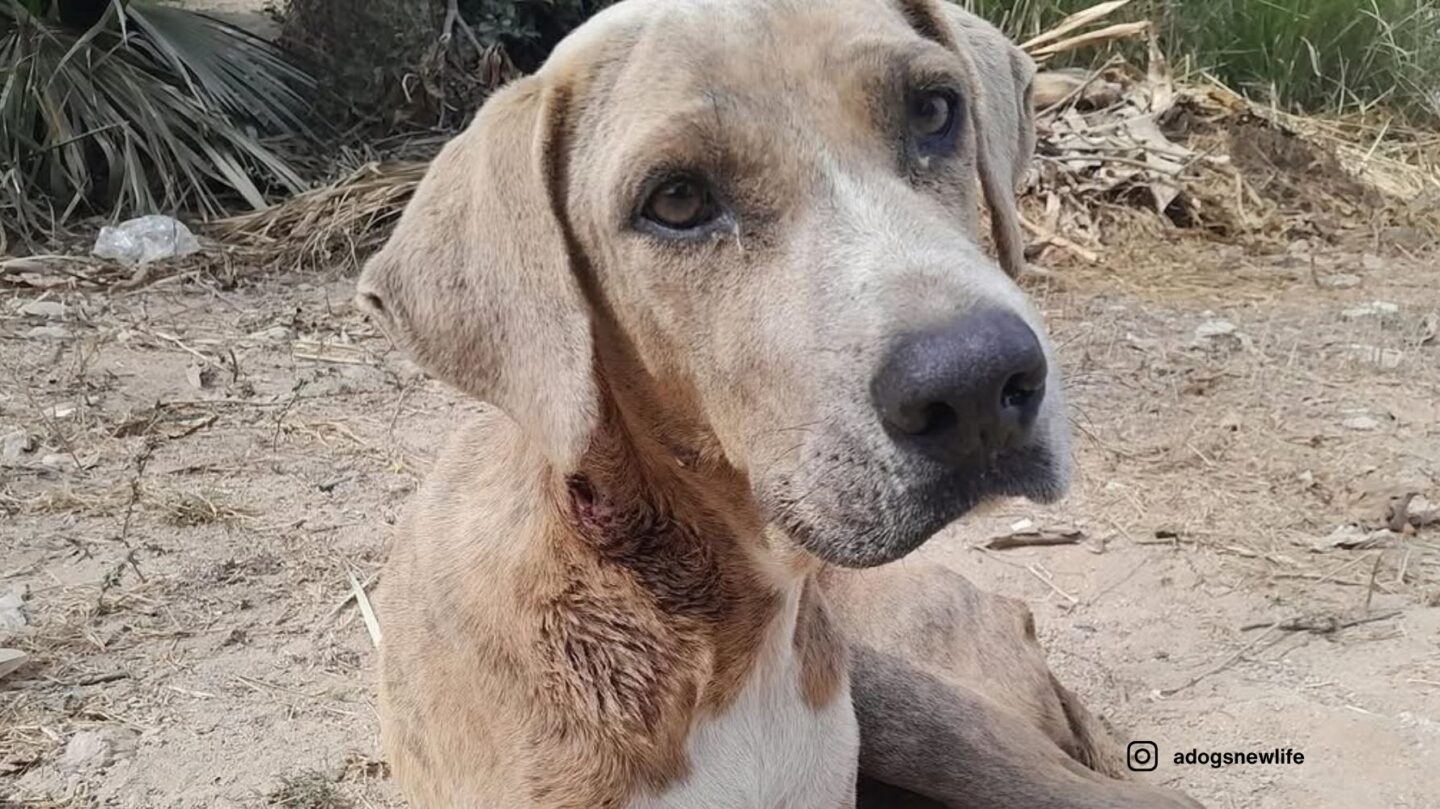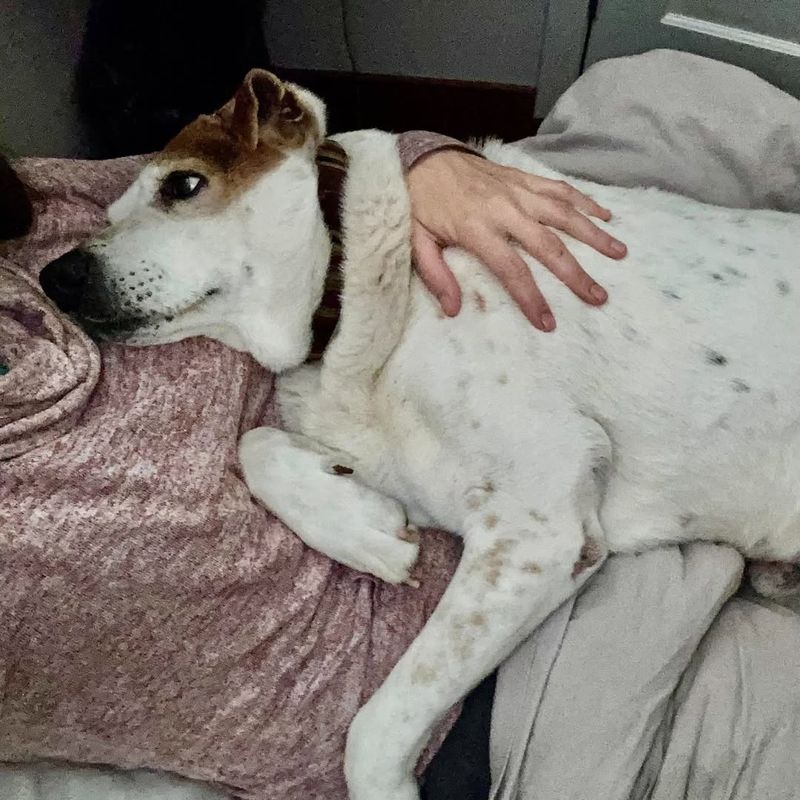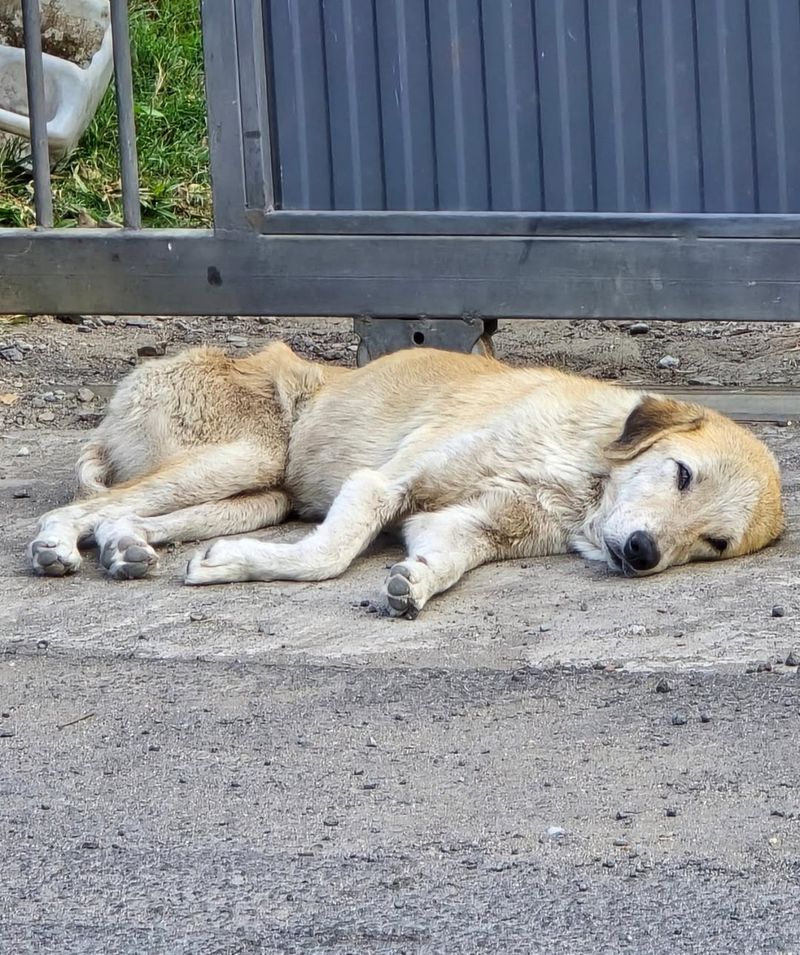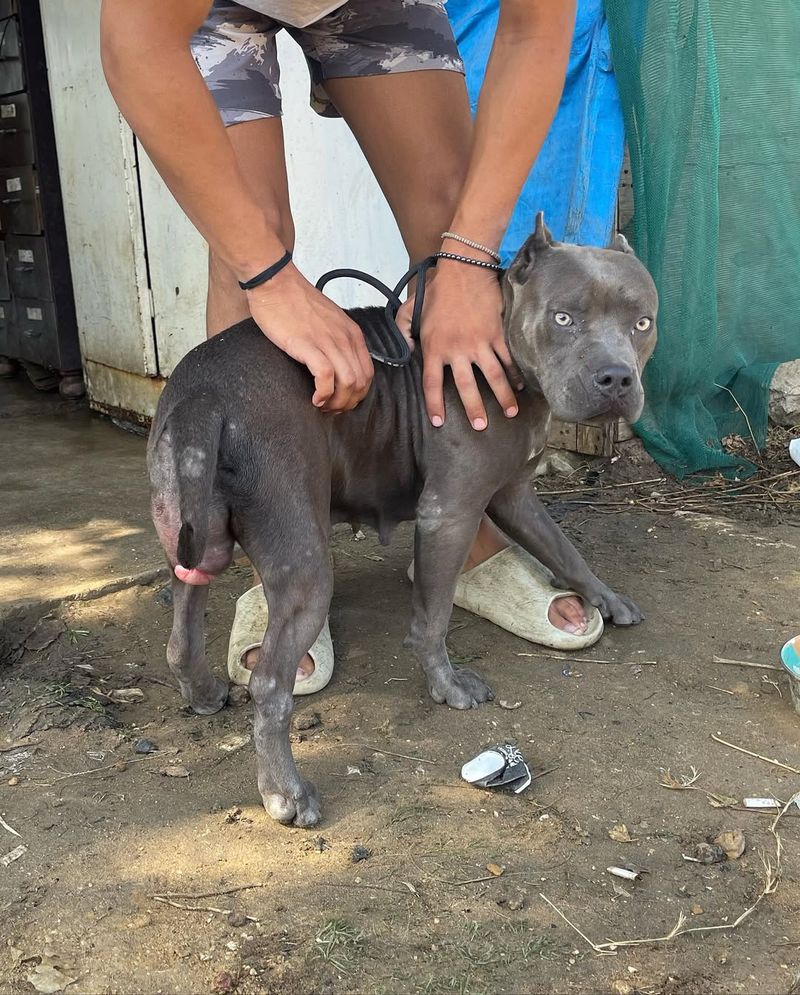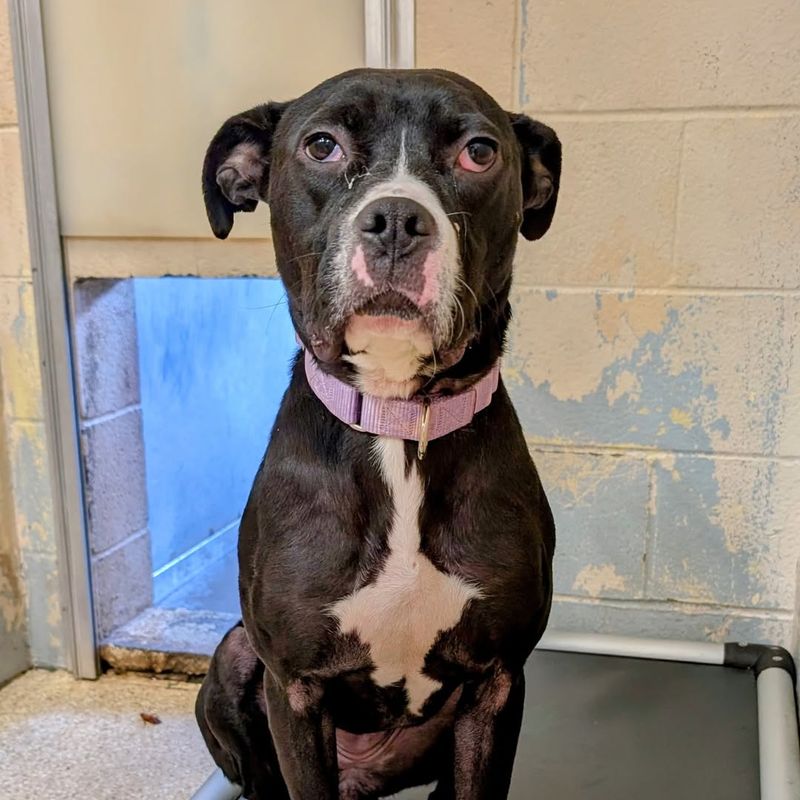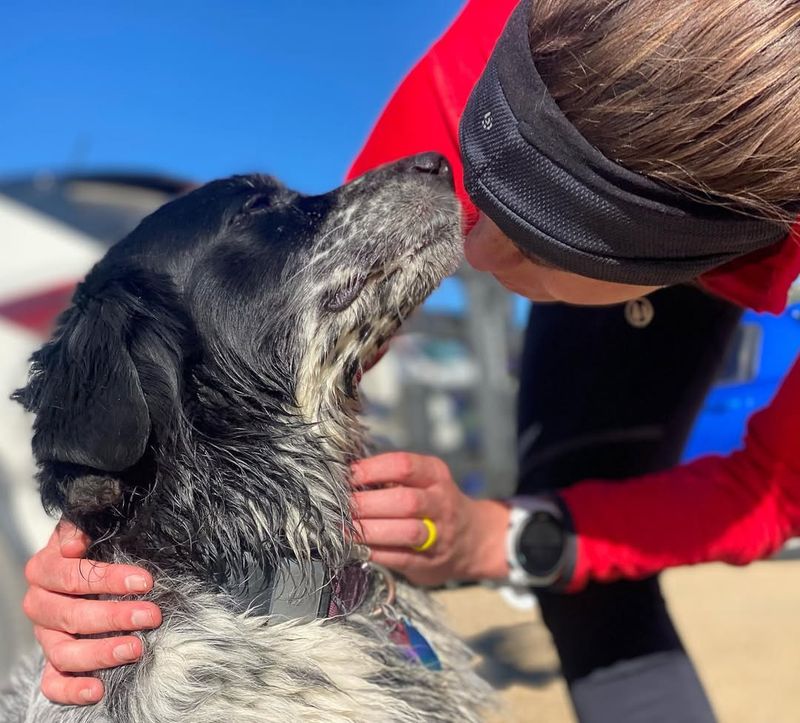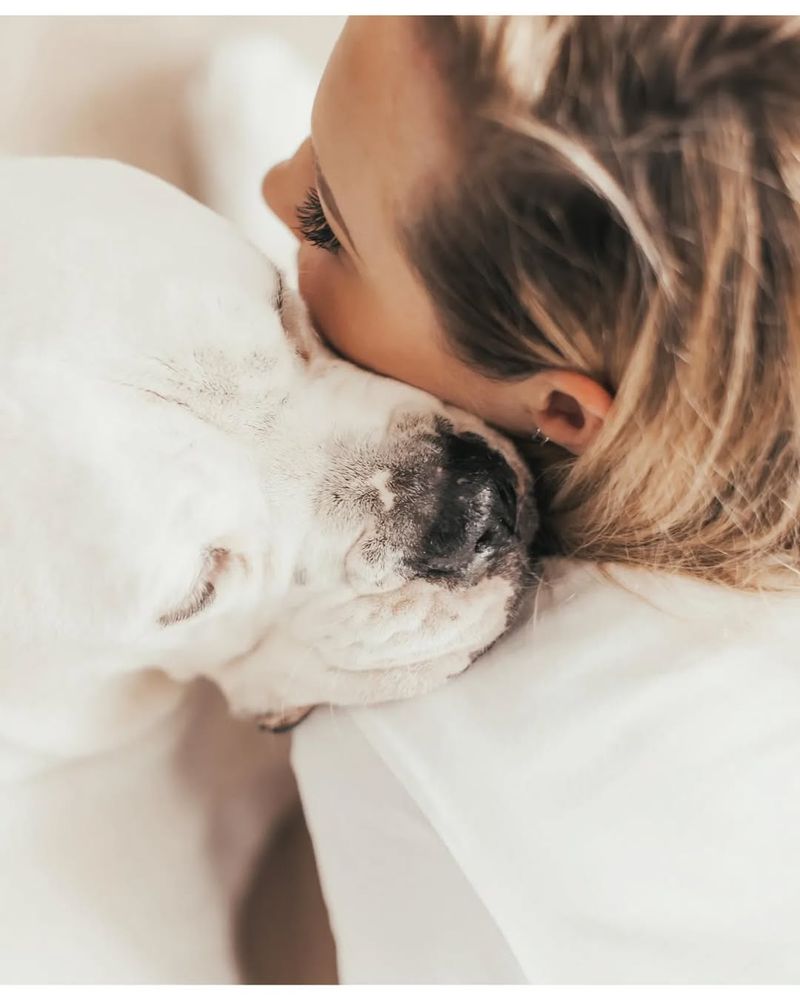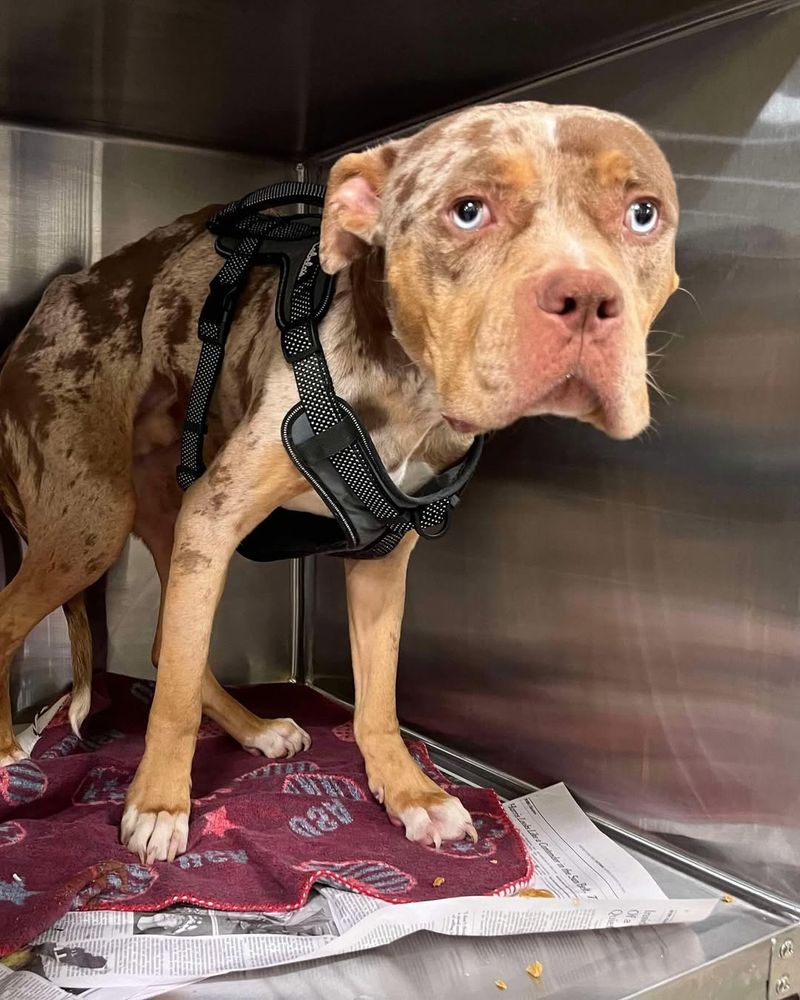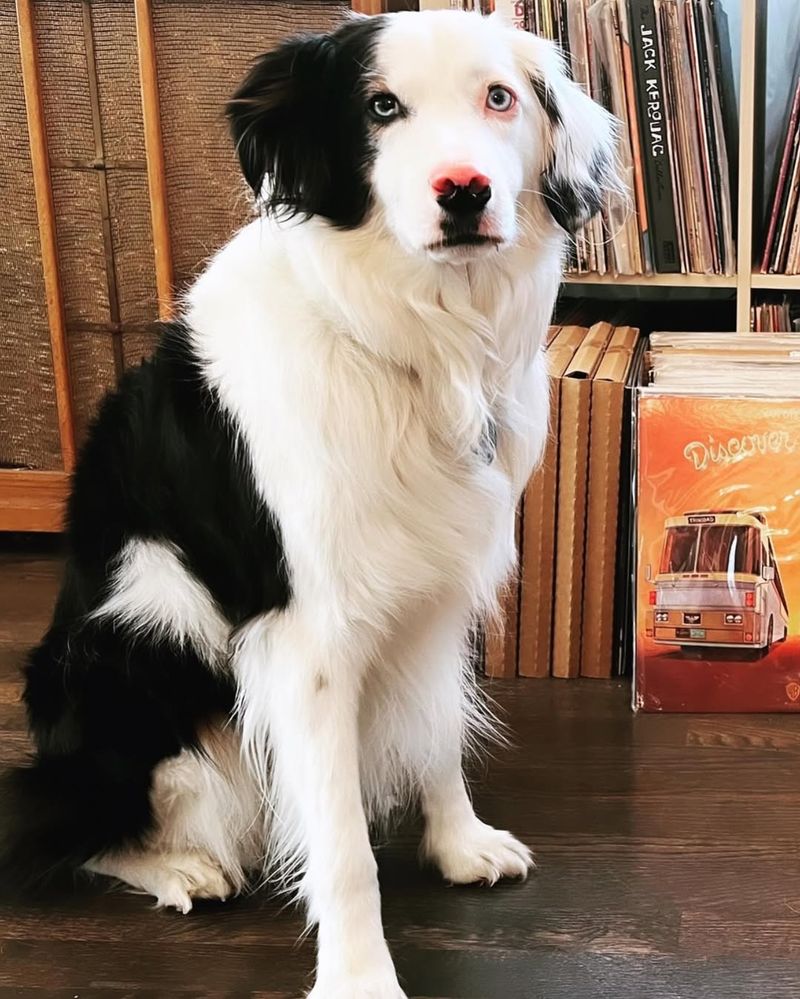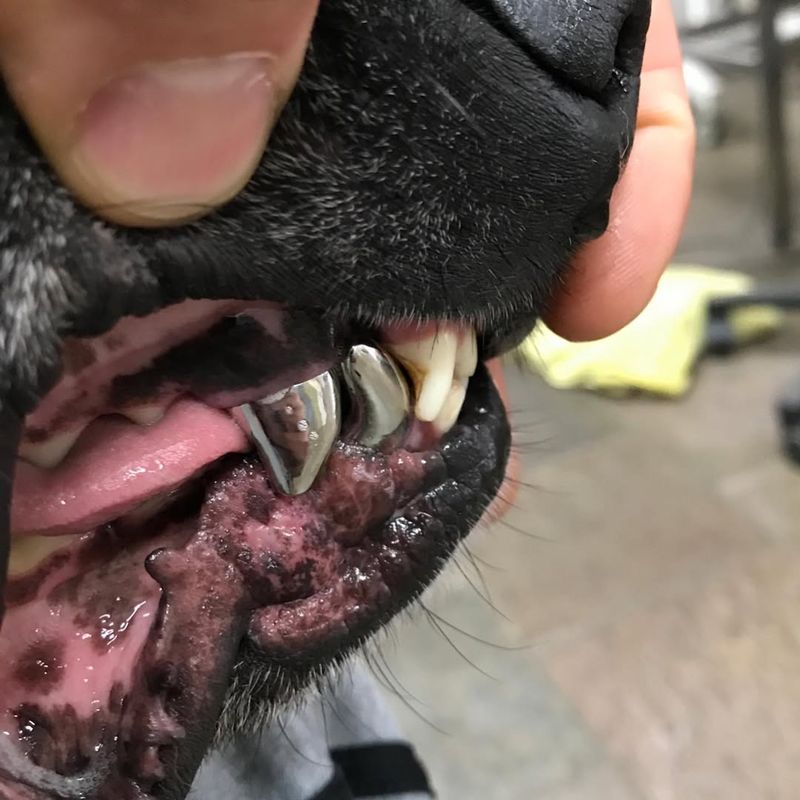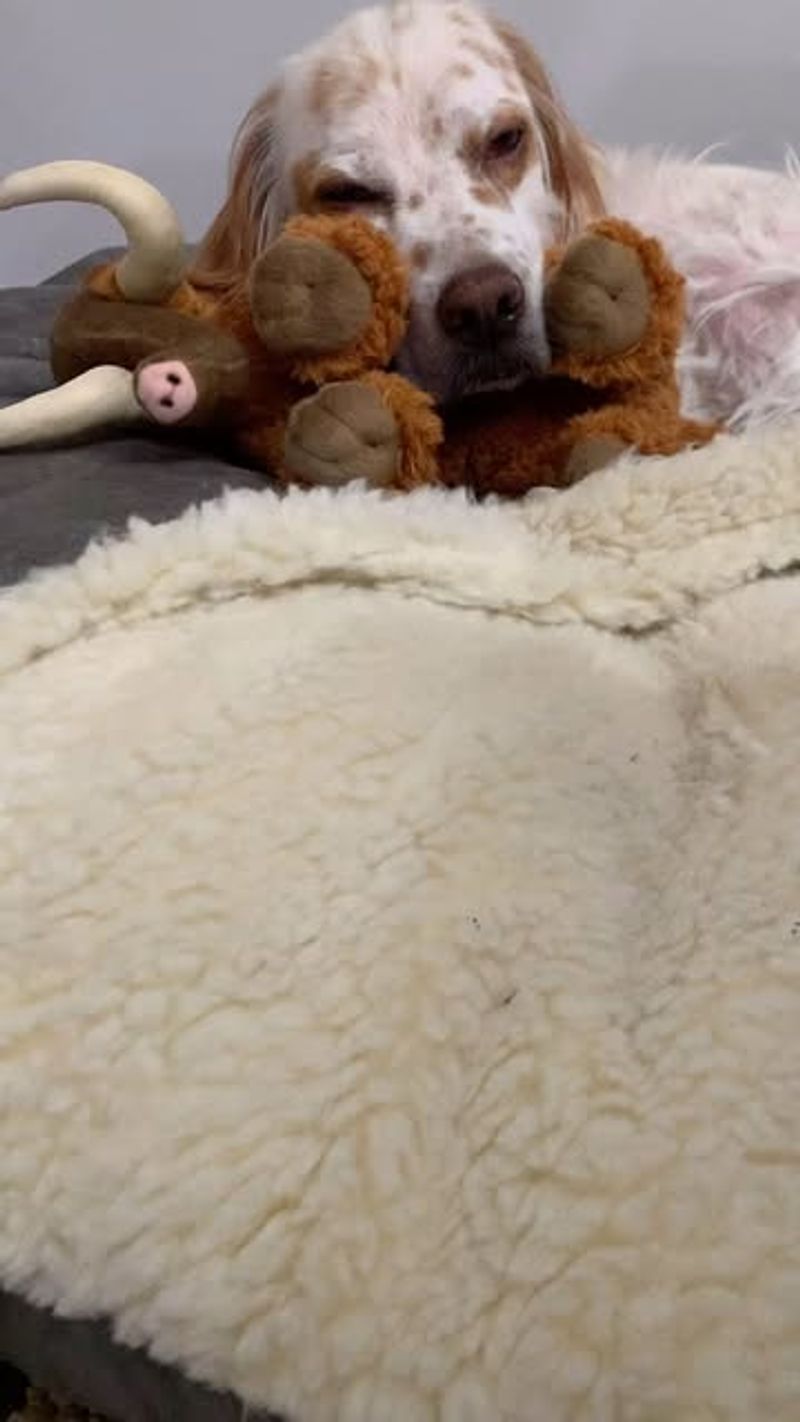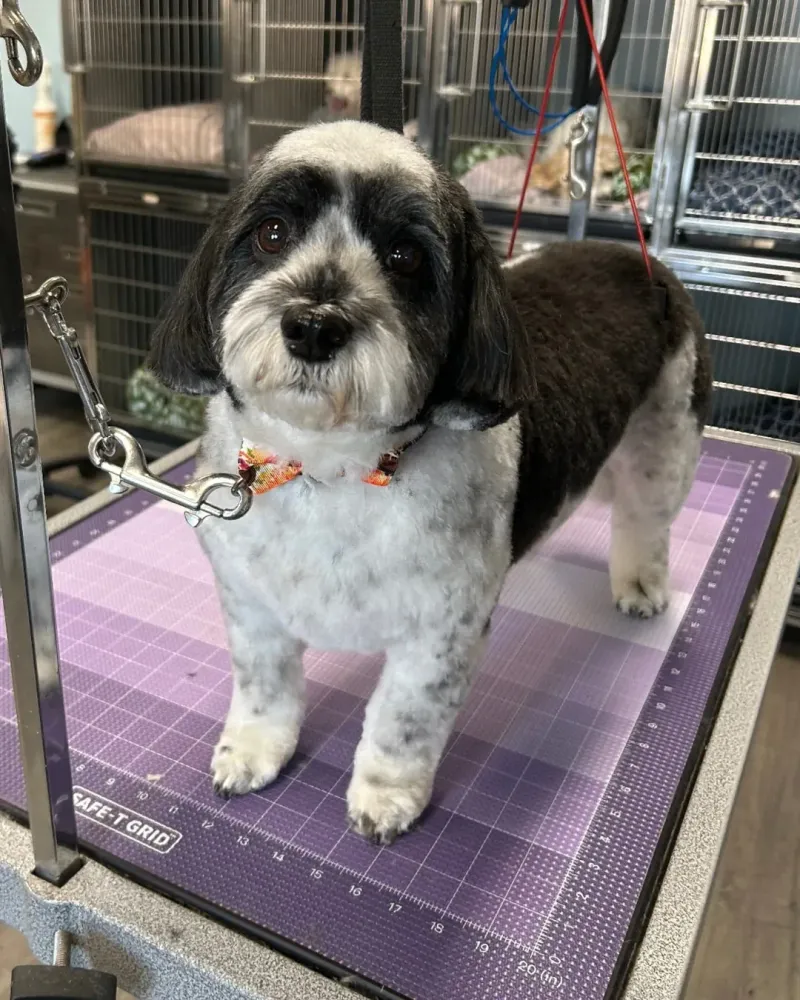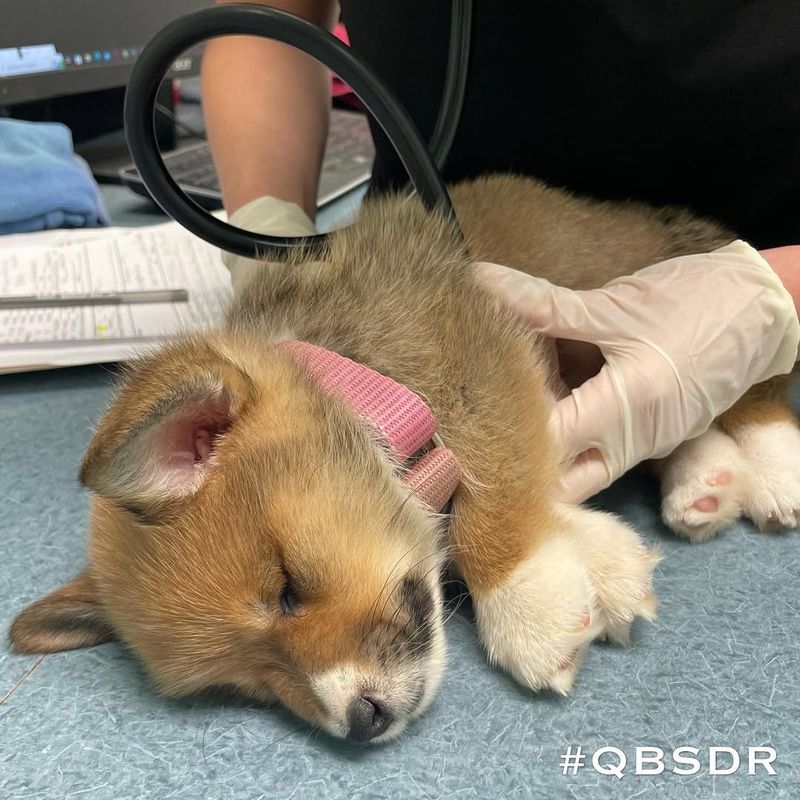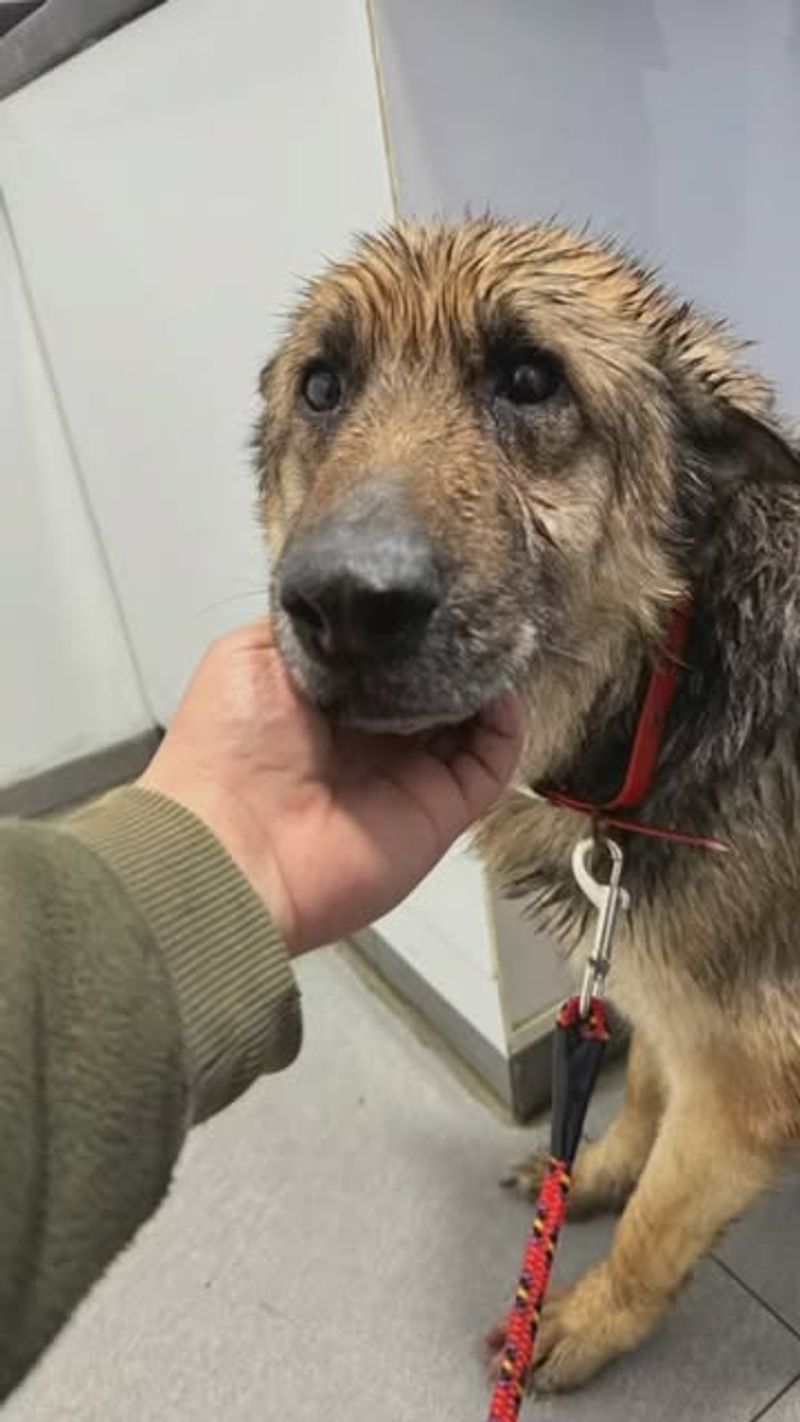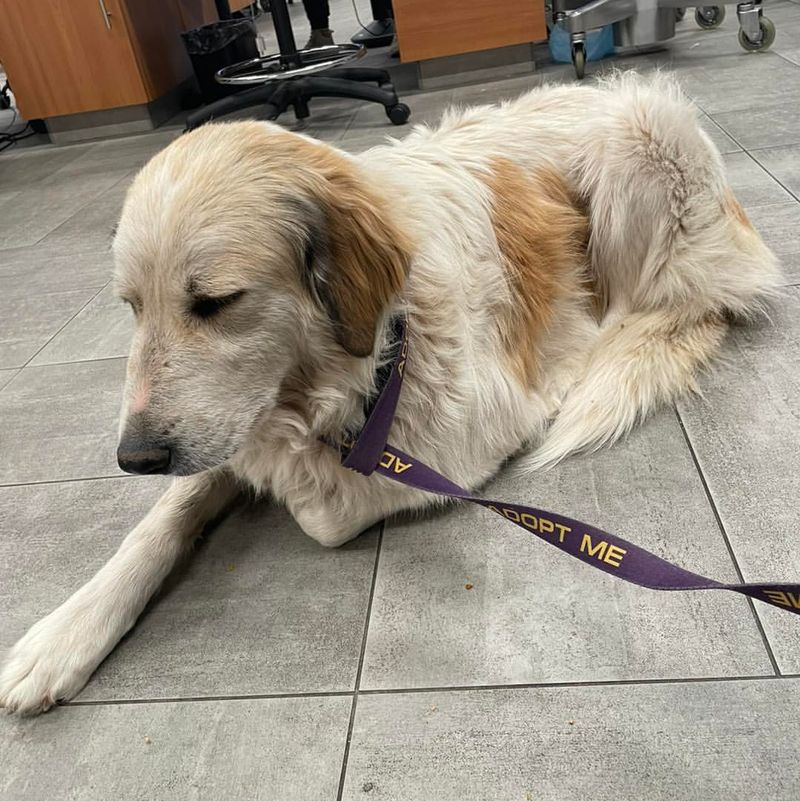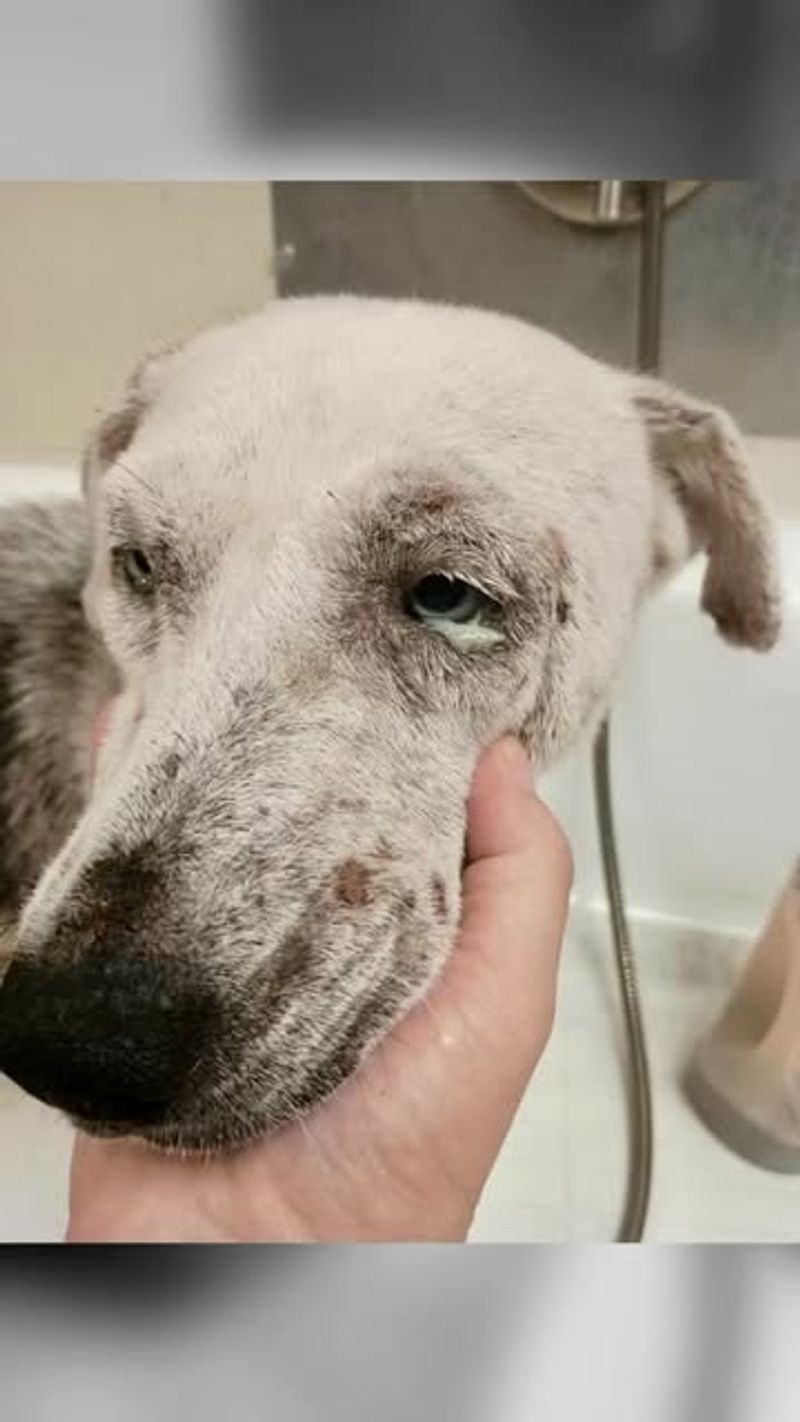As our beloved furry companions age, it’s important to recognize the gentle signs that may indicate they are nearing the end of their journey. Understanding these signs can help us provide comfort and make informed decisions during this tender time. Here are 19 subtle indicators that your dog might be preparing to cross the Rainbow Bridge.
Decreased Appetite
A noticeable decline in appetite can indicate your dog’s declining health. They might show disinterest in their favorite treats or eat significantly less during meals. This change can be due to reduced energy levels or underlying medical conditions. It’s important to monitor their intake and consult with a vet to discuss possible causes. Gentle encouragement and offering a variety of foods can sometimes help, but professional advice is crucial. Spending mealtime with them, offering soft, easily digestible foods, can also provide comfort and nourishment during this time.
Increased Sleeping
As dogs age, they tend to sleep more, requiring extra rest. You might notice your dog napping longer and more frequently throughout the day. This increased need for rest is often normal but can also indicate declining health. Creating a comfortable, quiet space for them to sleep undisturbed is essential. This resting environment should be warm and accessible, helping them feel secure and loved. Consult with your veterinarian if sleep patterns change drastically, as it might be a sign of an underlying health issue needing attention.
Difficulty Breathing
Breathing difficulties in older dogs can be subtle, like labored breathing or shortness of breath during mild activities. These signs may indicate heart or lung issues, common in aging pets. Ensure your dog is comfortable and avoid strenuous activities. Providing a calm environment with proper ventilation is beneficial. If you notice persistent difficulties, it’s crucial to seek veterinary care promptly. Early detection and treatment can make a significant difference in their comfort and quality of life during their remaining time.
Reduced Mobility
A decline in mobility can manifest as difficulty standing up, climbing stairs, or walking. Arthritis or joint pain is common in older dogs, affecting their ability to move as they once did. Assisting them with ramps or supportive harnesses can make daily activities easier and more comfortable. Regular, gentle exercise is beneficial, but it’s essential not to overdo it. Discussing pain management options with a vet can also provide relief and improve your dog’s quality of life, allowing them to enjoy their golden years with dignity.
Incontinence Issues
Incontinence is common in aging dogs, where they may have occasional accidents indoors. This issue can stem from weakened muscles, urinary infections, or other health concerns. Maintaining a compassionate approach is crucial, ensuring they don’t feel shame or distress. Using protective bedding and regular walks can help manage the situation. Consulting a veterinarian for proper diagnosis and treatment options such as medication or dietary changes can assist in managing incontinence effectively, helping maintain their dignity and your home’s cleanliness.
Cognitive Decline
Cognitive decline in dogs, similar to dementia in humans, can manifest as confusion, disorientation, or changes in interaction. Your dog may seem lost in familiar places or have altered sleep-wake cycles. Providing a stable environment, maintaining a routine, and engaging them with familiar activities can help mitigate these symptoms. Puzzle toys and gentle interactions can also stimulate their mind. Consulting a veterinarian for guidance on supplements or medications can offer additional support, improving their cognitive health and maintaining a quality of life.
Behavioral Changes
Behavioral changes such as increased irritability, withdrawal, or anxiety can indicate your pet’s discomfort or confusion. These changes are often signs of underlying health issues or cognitive decline. Offering them a calm, supportive environment with gentle reassurance can ease anxiety. Monitoring triggers and minimizing stressors also helps. If these behaviors persist, consulting a vet for advice and potential treatment options is beneficial, ensuring your pet remains comfortable and content during their twilight years.
Loss of Interest in Play
Older dogs may show decreased interest in play, a previously favorite activity. This change can result from reduced energy, discomfort, or cognitive decline. Encouraging gentle play with soft toys and short interactions can still provide joy and mental stimulation. It’s important to respect their pace and offer activities when they’re most alert. Regular veterinary check-ups can help identify any underlying issues, ensuring they receive appropriate care and continue to enjoy moments of joy and companionship.
Weight Loss
Unexplained weight loss in senior dogs can be concerning, potentially indicating health issues such as dental problems, dietary deficiencies, or chronic diseases. Monitoring their weight and maintaining regular veterinary visits can help address these concerns early. Offering high-quality, easily digestible food and ensuring they eat regularly can aid in maintaining a healthy weight. Discussing dietary supplements with a vet can also support their nutritional needs, helping them remain healthy and comfortable as they age.
Changes in Coat and Skin
Changes in your dog’s coat and skin, such as dryness, thinning, or color changes, can signal health issues or nutritional deficiencies. Dullness or excessive shedding might also accompany these changes. Regular grooming and quality nutrition can improve coat condition, while veterinary advice can address underlying health concerns. Omega-3 supplements and moisturizing shampoos may aid in maintaining healthy skin and fur. Keeping their environment clean and free of irritants will also support their skin health, ensuring they remain comfortable and happy.
Vision and Hearing Loss
Declining senses, such as vision and hearing loss, are common in aging dogs. They may hesitate or appear startled when approached, or struggle to find their way in familiar settings. Maintaining a familiar environment and using verbal cues or hand signals can assist them in navigating their world. It’s important to approach them gently to avoid startling them. Consult your vet for possible treatments or strategies to help manage these sensory declines, ensuring they continue to feel safe and loved in their familiar surroundings.
Bad Breath and Dental Issues
Bad breath, plaque buildup, and gum issues are common in elderly dogs, often indicating dental health problems. These can lead to discomfort and affect their eating habits. Regular dental check-ups and cleanings, along with dental treats or toys, can help maintain oral health. It’s essential to address any signs of pain or difficulty eating with your vet, as untreated dental problems can lead to more severe health issues. Providing proper dental care will ensure your dog’s comfort and enjoyment of meals during their later years.
Frequent Vomiting or Diarrhea
Frequent vomiting or diarrhea in senior dogs can signal gastrointestinal issues, dietary imbalances, or more severe health conditions. Monitoring these symptoms is crucial to determine if they are related to diet or require medical attention. Providing easy-to-digest food and maintaining hydration is important. If symptoms persist, consult your veterinarian for a thorough examination and treatment plan. Addressing these issues promptly can significantly improve your dog’s comfort, health, and overall quality of life, allowing them to enjoy their time with you.
Changes in Grooming Habits
Older dogs might groom themselves less, leading to unkempt fur. This change can be due to decreased mobility, discomfort, or health issues. Assisting with regular grooming can help keep their coat healthy and increase comfort. Offering gentle brushing sessions not only aids in maintaining a clean coat but also provides an opportunity for bonding and checking for any new lumps or skin changes. Discussing any concerns with your vet is important, ensuring your pet receives the care needed for optimal health.
Persistent Cough
A persistent cough in older dogs can indicate respiratory issues or heart problems. It’s crucial to observe when the coughing occurs, such as after activity or during rest. Providing a calm environment with minimal stress can aid in managing these symptoms. A visit to the vet is vital for proper diagnosis and treatment options, such as medications or lifestyle changes, which can improve your dog’s respiratory health and comfort. Ensuring they remain relaxed and surrounded by love will support their well-being.
Swollen or Painful Joints
Swollen or painful joints in senior dogs are common, often due to arthritis or other joint-related issues. You might notice limping or reluctance to move. Providing a comfortable resting space with supportive bedding can relieve joint pressure. Discussing pain management options with your vet, such as anti-inflammatory medications or supplements, is essential. Gentle exercises and weight management can also aid in maintaining mobility and reducing discomfort, ensuring your dog enjoys a good quality of life.
Increased Anxiety or Restlessness
Increased anxiety or restlessness in aging dogs can indicate discomfort or cognitive decline. They might pace or appear unsettled during usual rest times. Creating a soothing environment with calming music or aromatherapy can help ease anxiety. Consistent routines and comforting companionship are key. If these behaviors persist, consulting with a veterinarian can provide insights into possible underlying causes and treatments, ensuring your dog feels secure and loved in their familiar surroundings.
Loss of Bladder Control
Loss of bladder control is often seen in aging dogs, leading to occasional in-home accidents. This can result from weakened bladder muscles or specific health conditions. Regular outdoor breaks and protective bedding can help manage this issue. Patience and understanding are essential, ensuring your dog doesn’t feel ashamed. Veterinary advice can offer options such as medications or dietary adjustments to manage symptoms, helping maintain their comfort and dignity throughout this stage of life.
Lethargy and Weakness
Lethargy and weakness in senior dogs often indicate declining health or underlying conditions. You may notice them moving slowly or lacking enthusiasm for walks. Providing a nurturing environment with plenty of rest opportunities and gentle encouragement for short walks can support their energy levels. It’s important to consult with a vet to rule out any treatable conditions and discuss supportive care measures. Ensuring your dog feels loved and supported during this delicate time will contribute significantly to their well-being.
